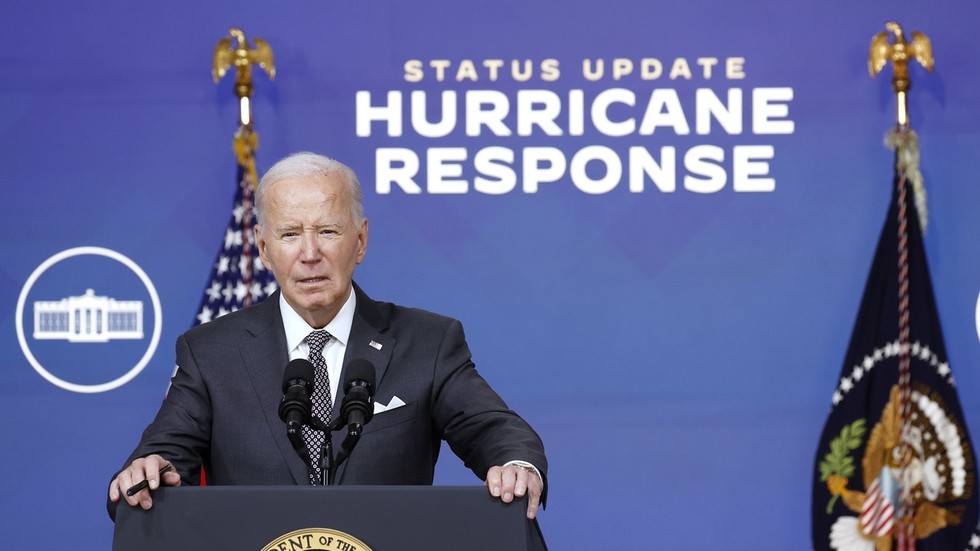In recent remarks, U.S. President Joe Biden took aim at former President Donald Trump for his commentary on the government’s handling of the devastation caused by recent hurricanes. His comments came in the context of the aftermath of Hurricane Helene, which resulted in the deaths of over 230 individuals, marking it as one of the deadliest storms to hit U.S. soil since Hurricane Katrina in 2005, and Hurricane Milton, which has claimed at least 16 lives and inflicted extensive damage across various regions in Florida. Trump, who is currently campaigning for a return to the White House in the upcoming presidential election, has criticized the Biden administration for what he characterizes as a severe mismanagement of the emergency response related to these natural disasters.
During a press conference, Biden was confronted with questions regarding Trump’s alleged spreading of misinformation about the government’s response to these hurricanes. In a moment of candor, he rejected any idea of engaging in dialogue with Trump and expressed frustration over Trump’s remarks. This exchange highlighted Biden’s broader contention that Trump should be held accountable for disseminating “reckless, irresponsible, and relentless disinformation.” Biden’s assertion was accompanied by a direct address to Trump, urging him to prioritize the needs of the hurricane victims rather than making political attacks. This moment underscored the ongoing political divide and the at-times personal nature of the discourse surrounding disaster response in the U.S.
Biden’s comments are rooted in the severe implications of misinformation, particularly in the context of emergency response. He indicated that false narratives have significant real-world consequences, including threats directed at emergency responders who are tasked with helping those affected by the storms. The president’s remarks serve as a stark reminder of the critical role accurate information plays in managing public health and safety during crises. The comparison to the aftermath of Hurricane Katrina, often cited as a benchmark for federal response to natural disasters, reinforces the gravity of the situation and the public’s expectation of efficient and effective government action.
In light of Trump’s criticism and the evident damage from the hurricanes, Biden faced inquiries not only about the storms but also concerning international issues, including Israel’s stance on Iran. He avoided directly addressing questions about Israeli Prime Minister Benjamin Netanyahu and the considerations surrounding potential military actions against Iran, referring instead to Israel’s assistance in dealing with the hurricane aftermath. This non-response highlights the complexities that Biden faces in balancing domestic and foreign policy interests, especially when both areas are significantly influenced by Trump’s rhetoric and actions.
Furthermore, Biden’s dismissal of any upcoming talks with Trump signals a strategic decision to prioritize direct engagement with affected communities rather than entering a potentially divisive argument with his predecessor. His approach appears aimed at fostering unity and collective action in the face of disaster, suggesting an inclination to set aside partisan rhetoric for the sake of practical governance. This tactic is part of a broader strategy to emphasize accountability and transparency in leadership, especially during times of crisis, which is essential for maintaining public trust and ensuring effective disaster response.
In conclusion, Biden’s critique of Trump in the context of hurricane response emphasizes the importance of truthful communication during emergencies and the potential perils of political disinformation. As the nation grapples with the impact of severe weather events and their aftermath, Biden’s focus remains on recovery and rebuilding efforts while navigating the intertwined challenges of domestic governance and international diplomacy. The president’s commitment to addressing the needs of hurricane victims while countering misleading narratives illustrates the ongoing struggle for integrity and accountability within the political landscape, setting the stage for the upcoming electoral battle and its implications for disaster management.

